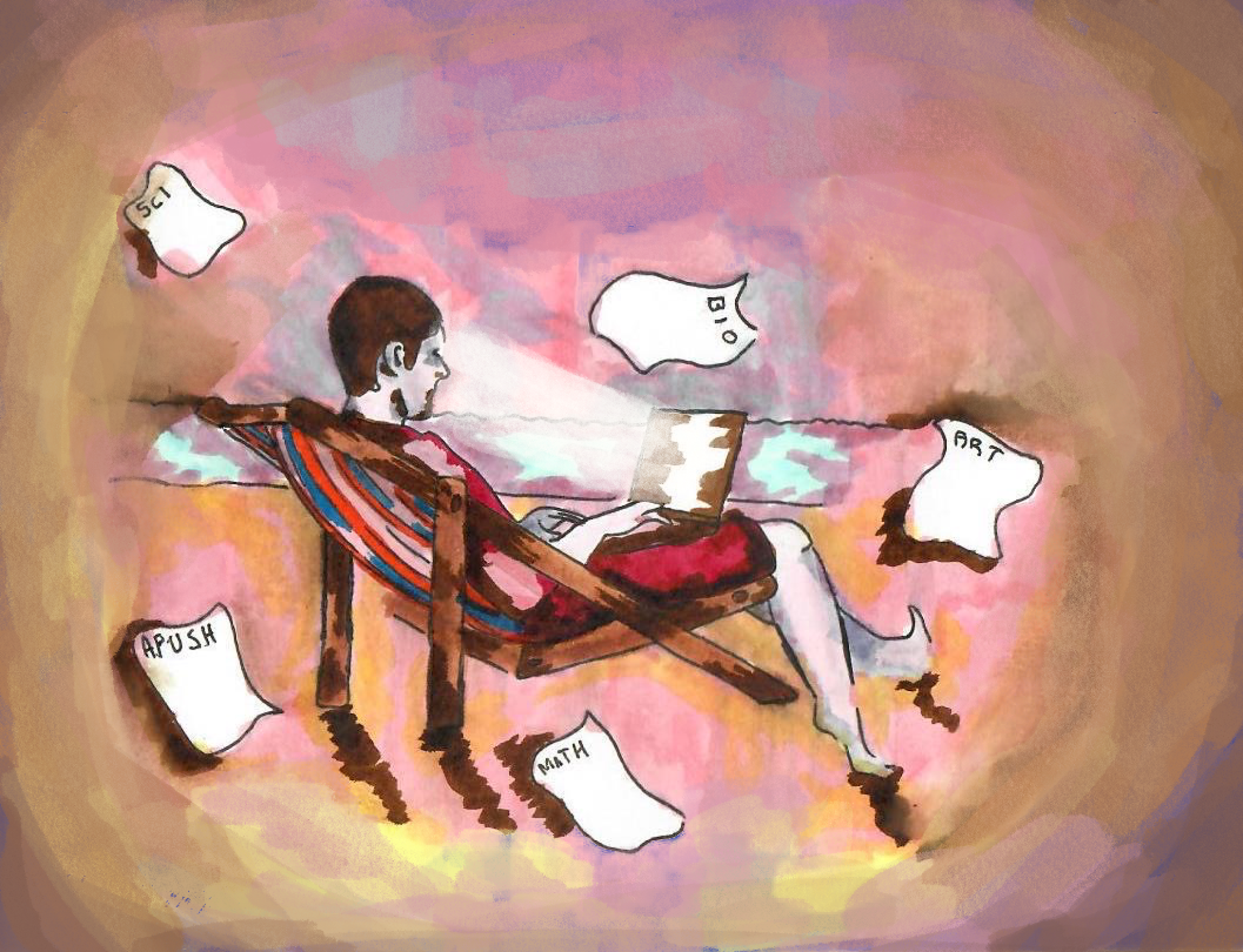Whether it's Thanksgiving or winter break, many students find that a large amount of their time during school breaks is spent doing homework or studying. It's very common for teachers to assign tedious assignments that take up far too much time and take away from the purpose of having a break during the year. Teachers should not be able to assign a lot of work over break because students need this time to recharge, spend time with family, and pick up new hobbies.
When Kendall Maddry, a Berkeley High School senior, was asked about spending time doing homework over break, she said, “I wasn’t able to fully enjoy my break, because I knew, in the back of my mind, there were all the assignments I still had to do. I was just dreading the fact that I had to do schoolwork on the one to two vacations I had during the year.”
Students experience the traditional forms of academic intake throughout the school year, which may not be the best method of learning for everyone. Breaks can provide time where students can expand their intake of knowledge, whether it's from spending time with family, trying new things, or even getting more hours working at a job.
During breaks, a student could even find a new hobby or interest that can take them far. High school is a time for students to think about what they are good at and how they can utilize those skills in adulthood. Academic work does not always give the time for this kind of self-reflection or realization.
Furthermore, for most students, November and December are months when school can weigh heavy on their shoulders. Many students taking challenging classes find that these months are packed with tests and presentations. Finals in December can take a lot out of students, so much so that afterward, many feel burnt out. Breaks give students the time to reflect on how they did in the previous semester and can help them change so that they can improve their grades and test scores.
During the school year, hectic schedules mean that students have less time with their families. Holiday breaks provide those moments with family that can bring people together and can benefit students’ emotional well-being. Maddry says, “I think winter and spring breaks' purpose is to allow students and teachers to recharge. When they are worn down from the day-to-day school life, there’s a chance to break out of it and do things that we really enjoy doing, so that when it's time to come back to school, we are better prepared.”
Week-long and longer breaks from school are critical times for students to dive deep into their interests, spend time with family and friends, and relieve stress. All of these factors can benefit students when they return to school because they have a higher chance of feeling more motivated, having a higher focus in class, and being enthusiastic about what they are learning in school. While small assignments can be okay, teachers should avoid assigning work that could take away from the purpose of the break.





